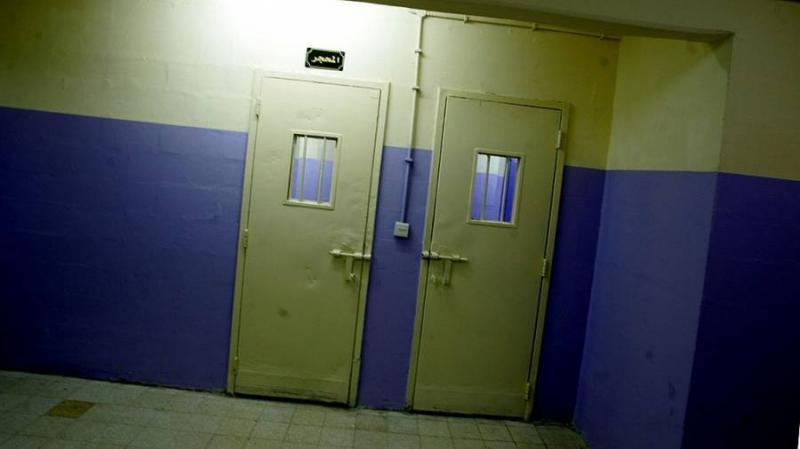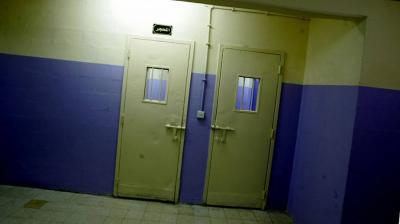Under the title "Report on the Death of Dozens in Iraqi Prisons... Officials Deny," the Alhurra website published news about human rights activists criticizing the conditions of Iraqi prisons. The "Afaad" rights observatory revealed serious violations behind bars that have led to the deaths of dozens of inmates and detainees. The observatory, citing senior sources in the Ministry of Health, confirmed an "increase in the number of deaths inside the prisons under the Ministry of Justice, deportation prisons, and detention centers since the beginning of this year," attributed to poor detention conditions, ongoing systematic torture, and a lack of humanitarian circumstances for detention.
The observatory stated, "According to forensic departments, a few of the victims showed signs of severe beating on the flanks, genital areas, lower back, and fractures in the cervical vertebrae, while other deaths were attributed to high blood pressure or food poisoning, and cases of internal bleeding with undetermined causes."
"60 Deaths Since the Beginning of the Year"
The spokesperson for the observatory, journalist Ziad Al-Sanjari, stated in an interview with Alhurra that "Iraqi prisons have seen a rise in the mortality rate among inmates since January 5 of this year, with the number of deaths reaching 60 prisoners, with March recording the highest number of casualties." Al-Sanjari noted that "records show that more than half of the victims are middle-aged individuals between 35 and 50 years old, who do not suffer from any chronic diseases or side effects," pointing out that "Al-Nasiriya (Al-Hout) and Taji prisons in Baghdad recorded the highest cases of deaths."
He added, "The investigation centers in Baqubah and the deportation centers in Rusafa, Ramadi, and Hilla have the highest number of deaths due to torture." Al-Sanjari emphasized that "the tragic conditions and severe torture require serious action from the government to stop the ongoing killing of prisoners and the deliberate medical negligence that inmates suffer from."
"No Torture Cases"
In contrast, high-level sources in the Ministry of Justice denied to Alhurra that "there are any torture or human rights violations in its prisons," asserting that "the prisons suffer from overcrowding and a lack of medical supplies." The sources stated that "it is necessary to distinguish between prisoners, as some are still under investigation and are not subject to the Ministry of Justice but to law enforcement agencies such as the Ministry of Interior and anti-terrorism forces, while others are serving a judicial sentence under our supervision."
Regarding reports of torture and unexplainable deaths in prisons, the sources said, "There is confusion in this regard; when a corpse is left for hours in the same position, blood congestions appear that some may mistake for signs of torture, and only forensic medicine can clarify this point." The sources concluded by stating that "the Ministry of Justice's prisons are free from any torture cases or intentional killings of inmates."
45,000 Inmates in Iraq
For his part, the director general of an Iraqi prison told Alhurra, "It is important to talk about the problem of overcrowding and the lack of adequate medical supply for inmates." The official, who refused to disclose his name, emphasized that "an inmate, just like any citizen, may face death; there are more than 45,000 inmates in Iraq, and due to overcrowding some may contract specific illnesses like scabies and allergies."
He also pointed out that "some inmates suffer from chronic diseases like hypertension and diabetes, yet there are insufficient health services provided for them," revealing that "one inmate in the prison he manages recently died due to diabetes." He added, "Deaths in prisons can also be caused by fights among inmates, as they exist in a non-ideal environment filled with violence and extremism," stressing that "the allegations of torture and deaths must be addressed before the relevant judiciary."
"Detention Conditions Violate Laws"
Al-Sanjari asserted that "some families of the victims are threatened and pressured not to file lawsuits to investigate the cause of death," stressing that "the detention conditions violate laws and international treaties." He called for "an international investigation, especially since some individuals infected with the Coronavirus have been denied treatment in hospitals or access to oxygen within the prisons."
It is worth mentioning that this is not the first time that reports of human rights violations have been discussed in prisons in Baghdad and elsewhere, as the Iraqi Observatory for Human Rights had published shocking images in February showing a prison in Tal Keif in Nineveh Province (northern Iraq) taken earlier. The photos depicted overcrowded prison cells. The observatory urged the Iraqi government to improve prison conditions, particularly for juvenile detention centers. The images sparked outrage on social media regarding the state of government prisons in Iraq and the humanitarian situation within them.




